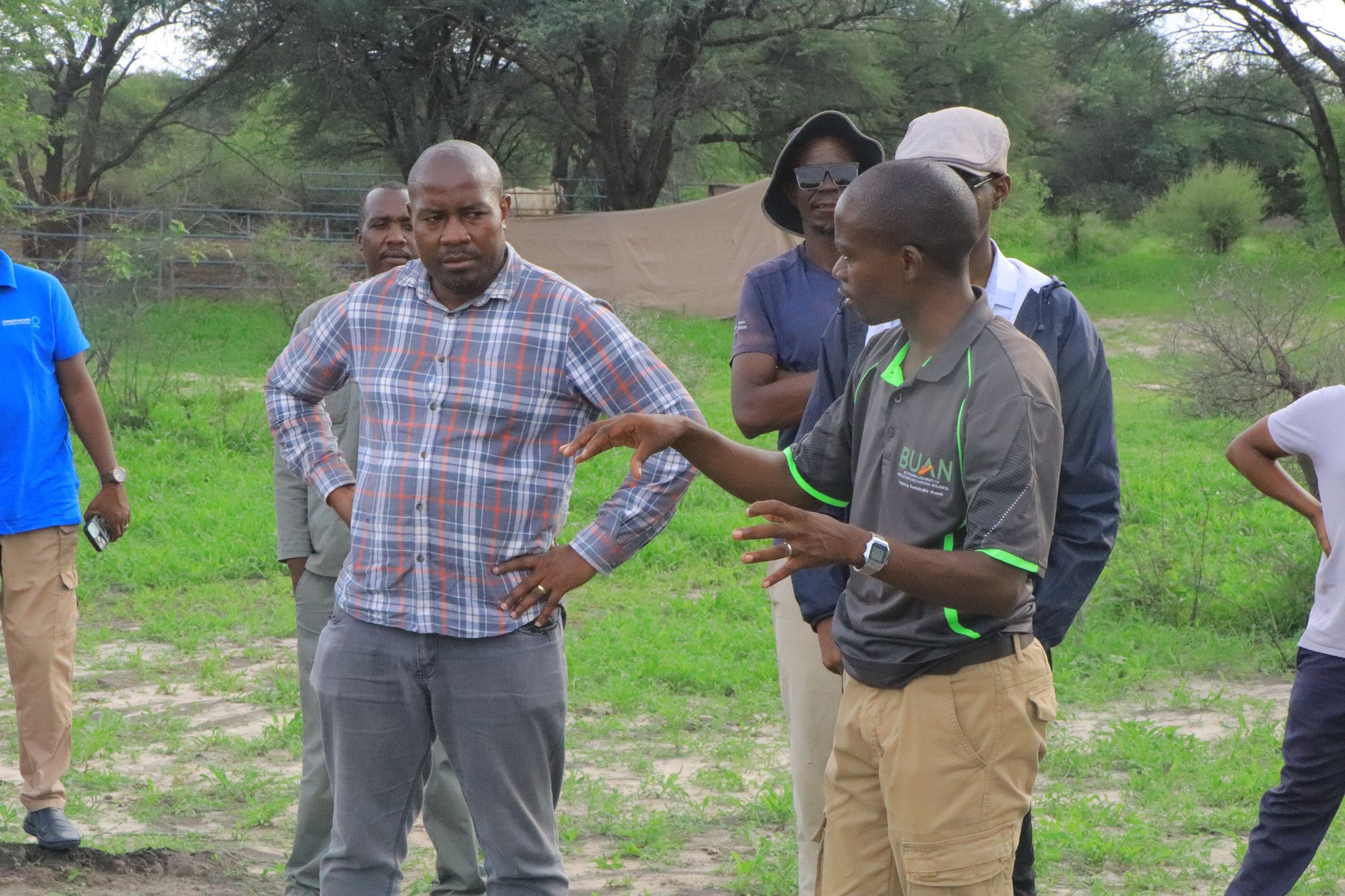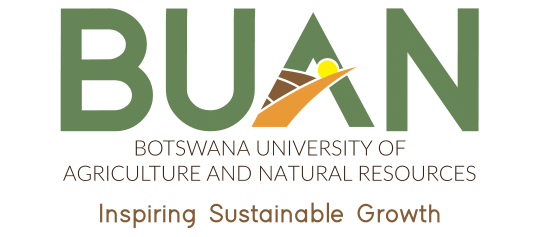
News Date : 16 January, 2025
BUAN, Conservation International, Green Climate Fund and the Botswana Government commit to Preserving Botswana’s Communal Rangelands
The recent impacts of climate change have prompted notable shifts in agricultural practices for Batswana. Challenges such as securing adequate feed for livestock and achieving satisfactory crop yields have become increasingly prevalent due to severe droughts and floods. These conditions have adversely affected the ecosystem, leading to difficulties for wildlife in finding sufficient food, escalating human-wildlife conflicts, and causing significant degradation of our rangelands. In response to these critical challenges, the Botswana University of Agriculture and Natural Resources (BUAN) has partnered with Conservation International (CI) and the Botswana Government to implement the Ecosystem-Based Adaptation and Mitigation in Botswana’s Communal Rangelands project. This project is funded by the Green Climate Fund, Conservation International Foundation, and Botswana Government.
The project aims to drive significant improvements in rangeland management, creating a sustainable framework that bolsters our communities' socioeconomic well-being and climate resilience, enhances ecosystem health, and reduces national Greenhouse Gas (GHG) emissions. The planned interventions under this project are designed to significantly enhance the adaptive capacity of Batswana as they navigate the effects of climate change on communal lands in Ngamiland, Kgalagadi, and Bobirwa. These regions have been specifically identified due to their high vulnerability to climate change and their socioeconomic sensitivities. This initiative aims to reinforce institutions and support systems for climate-responsive planning and management within communal rangelands.
Community engagement is a critical element of this project because the community is the one that experiences firsthand the impacts of climate change in their area. Therefore, the first thing the project team had to do to initiate this endeavor was engage with the communities in Ngamiland. On January 14th, BUAN and CI visited Habu village in Ngamiland to engage with village leadership and the trustees of Wild Entrust. Established to address human-wildlife conflict and promote community development, Wild Entrust focuses on education, intergenerational development, and the sustainable conservation of local resources. Given the community's struggles with livestock predation by wild animals, the trust has employed a team of scouts to oversee livestock herding and manage in wildlife grazing and movement. However, there is a recognized need for additional community members to receive training in wildlife management to empower them to respond effectively to wildlife encounters while promoting coexistence.
On January 16th, the team set off for Eretsha with the CLAWS Conservancy, a nonprofit organization dedicated to mitigating human-lion conflict in the Okavango Community Trust villages, which include Seronga, Gunotsoga, Eretsha, Beetsha, and Gudigwa. Similar to the Wild Entrust, the CLAWS Conservancy has introduced livestock herding in these villages. Since 2019, attacks on livestock have significantly decreased, with only two cattle lost from the herd. Despite this success, the communities have communicated to BUAN and CI that they need training in animal husbandry, financial management, and wild animal behavior
The role of BUAN in this project is to empower communities in the sustainable conservation of rangelands by designing targeted short programs that address their specific needs. Participants will gain insights into their ecosystems, the importance of conservation, and the role of each organism within that framework. These programs will be inclusive and will acknowledge and incorporate Indigenous knowledge, fostering a comprehensive understanding of ecological balance and sustainable practices essential for the future stewardship of Botswana’s rangelands



